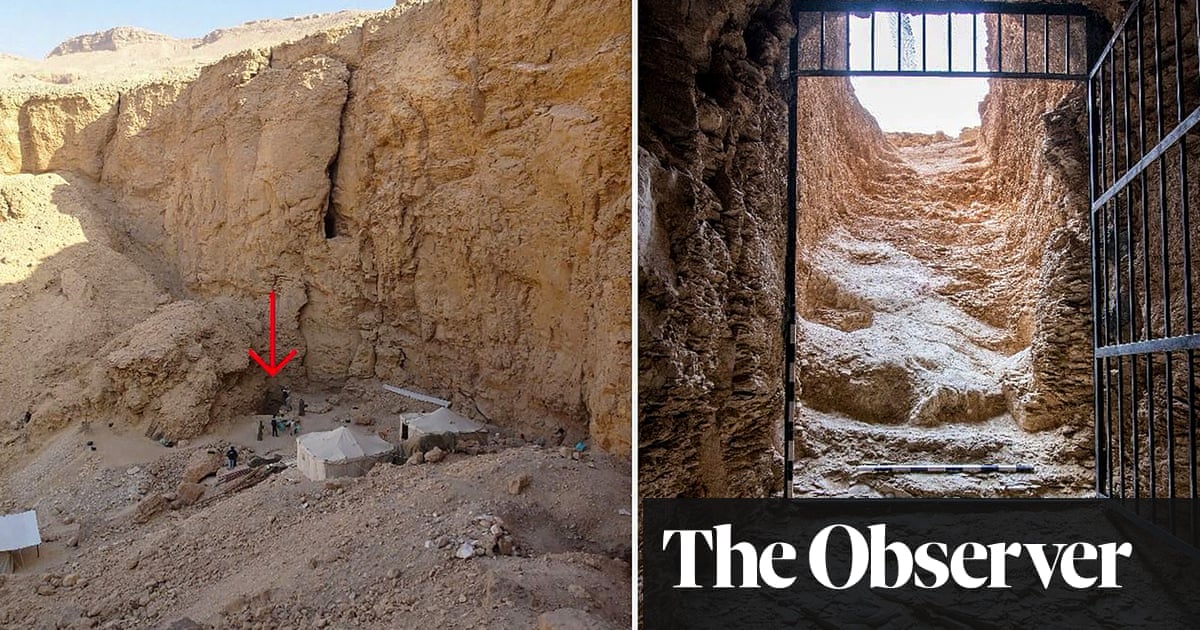US embassy in Kyiv shuts over anticipated air attack
The US embassy in Kyiv has received “specific information” of a potential significant air attack on Wednesday and will be closed, the US Department of State Consular Affairs said in a post on X.
It recommended US citizens to be prepared to immediately shelter in the event an air alert is announced.
Key events Show key events only Please turn on JavaScript to use this feature
In its latest operational update, Ukraine’s army has said that on Tuesday there were up to 139 combat engagements on the front lines between Ukrainian and Russian forces.
Sergey Naryshkin, who is director of Russia’s foreign intelligence service, is being quoted in Russian media as saying that attempts by Nato countries to strike inside Russia will not go “unpunished”.
Local media reports that explosions have been heard in Kherson. This is not uncommon, as the Dnipro river, on which the city lies to the north, marks a frontline between Ukrainian forces and Russian forces, who occupy the southern portion of the Kherson region.
The chief of staff in Belarus, Pavel Muraveiko, has described US moves to allow Ukraine to deploy longer-range missiles and anti-personnel mines as “irresponsible”, Reuters reports.
In a television interview in France, foreign minister Jean-Noël Barrot has dismissed Vladimir Putin’s approval of a new nuclear doctrine yesterday as rhetoric, and, Reuters reports, said “We are not intimidated.”
The change in nuclear doctrine yesterday lowered the threshold for Russia’s use of nuclear weapons, with a significant development being that Russia says it now considers a nuclear response justified if it is on the receiving end of aggression by a non-nuclear power that is being aided by a nuclear power.
Russia arrests German citizen on sabotage charges - state media
The Russian Federal Security Service (FSB) said on Wednesday it detained a German citizen who had been allegedly involved in organising the explosion at a gas distribution station in Kaliningrad in March this year and had been trying to enter Russia, according to state media.
Russia detained the German national, named as Nikolai Gaiduk, on sabotage charges. Authorities said he “is implicated in the March 2024 explosion at a gas distribution station” in Kaliningrad, the Russian region sandwiched between Poland and Lithuania.
The man had returned to Russia “to organise acts of sabotage on local energy infrastructure”, according to a statement by the FSB, which was quoted by news agencies.
A video confession by the man was shown on state television.
Russian media, citing the defence ministry, reports that 44 Ukrainian aircraft-type drones were intercepted over Russia overnight.
The Russian defence ministry claims that 20 of them were over Novgorod oblast, which is to the south-east of St Petersburg, and some considerable distance from Ukraine. The claims have not been independently verified.
A special hotline in place to deflate crises between the Kremlin and the White House, created after the 1962 Cuban Missile Crisis, is not currently being used, the Kremlin said on Wednesday, as nuclear risks rise amid the highest tensions between Russia and West in decades, Reuters reports.
Russian President Vladimir Putin on Tuesday lowered the threshold for a nuclear strike in response to a broader range of conventional attacks, days after reports said Washington had allowed Ukraine to use US-made weapons to strike deep into Russia. Putin has altered Russia’s so-called “nuclear doctrine” several times since the invasion of Ukraine, without ever making good on nuclear threats.
“We have a special secure line for communication between the two presidents, Russia and the United States. Moreover, even for video communication,” Kremlin spokesperson, Dmitry Peskov told TASS state news agency. But when asked whether this channel is currently in use, he said, “No.”
Ukraine used US Atacms missiles to strike Russian territory on Tuesday, taking advantage of the newly granted permission from the outgoing administration of US President Joe Biden on the war’s 1,000th day.
Russian diplomats say the crisis between Moscow and Washington now is comparable to the 1962 Cuban Missile Crisis when the two cold war superpowers came closest to intentional nuclear war, and that the West is making a mistake if it thinks Russia will back down over Ukraine.
Some more information on the US embassy closure in Kyiv. Further to its post on X, the US Department of State Consular Affairs published a notice on the embassy website saying the closure was “out of an abundance of caution”.
The US embassy in Kyiv has received specific information of a potential significant air attack on November 20.
Out of an abundance of caution, the embassy will be closed, and embassy employees are being instructed to shelter in place.
The US embassy recommends US citizens be prepared to immediately shelter in the event an air alert is announced.
The warning comes a day after Ukraine used US Atacms missiles to strike Russian territory, taking advantage of newly granted permission from the outgoing administration of US President Joe Biden on the war’s 1,000th day.
Latest Russian airstrikes on Ukraine threaten ‘catastrophic power failure’

Dan Sabbagh
Dan Sabbagh is the Guardian’s defence and security editor, reporting from Kyiv
Ukraine’s power network is at “heightened risk of catastrophic failure” after Russia’s missile and drone attack on Sunday, Greenpeace has warned, raising fears about the safety of the country’s three operational nuclear power stations.
The strikes by Moscow were aimed at electricity substations “critical to the operation of Ukraine’s nuclear plants” and there is a possibility that the reactors could lose power and become unsafe, according to a briefing note prepared for the Guardian.
Shaun Burnie, nuclear expert at Greenpeace Ukraine, said:
It is clear that Russia is using the threat of a nuclear disaster as a major military lever to defeat Ukraine. But by undertaking the attacks Russia is risking a nuclear catastrophe in Europe, which is comparable to Fukushima in 2011, Chornobyl in 1986 or even worse.
The pressure group called on Russia to immediately halt its attacks on Ukraine’s energy grid and for the International Atomic Energy Agency (IAEA) to deploy permanent monitors in substations critical to the country’s nuclear plants. The IAEA conducted one inspection in late October, but has not committed to return.
More on the news that Joe Biden has authorised the provision of antipersonnel landmines to Ukraine, which was first reported by the Washington Post.
Here is some further context from the Post’s story:
The Biden administration is deeply concerned about Russia’s assaults against Ukraine’s frontlines in recent weeks and sees a pressing need to blunt the advance, officials said. The Pentagon believes that the provision of the mines is among the most helpful steps the Biden administration can do to help slow Russia’s attack, officials said.
One official said the type of antipersonnel landmine is “nonpersistent,” meaning that the mines self-destruct or lose battery charge to render them inactive within days or weeks, reducing the danger to civilians. The official said that Ukrainian policymakers had committed to not deploying the mines in densely populated areas. Arms control experts said that even nonpersistent mines pose a safety hazard.
“Russia is attacking Ukrainian lines in the east with waves of troops, regardless of the casualties that they’re suffering,” one of the officials said. “So the Ukrainians are obviously taking losses, and more towns and cities are at risk of falling. These mines were made specifically to combat exactly this.”
North Korean troops fighting in Russian elite units, Seoul says
Some of 10,900 North Korean troops sent to Kursk have been fighting in elite Russian airborne and marine units against Ukraine, according to a lawmaker on the intelligence committee of the South Korean parliament.
Park Sun-won, citing the South’s spy agency, said North Korea had also shipped additional arms for the war in Ukraine, including self-propelled howitzers and multiple rocket launchers.
Park added that the North Korean foreign minister Choe Son Hui’s meeting with Vladimir Putin in Moscow this month was unusual in terms of protocol, and likely went beyond exchanging greetings, to cover more significant issues including a possible visit to Russia by Kim Jong-un. The spy agency was still trying to determine the exact number of North Korean troop casualties and whether any had surrendered amid conflicting information, Park said.
US embassy in Kyiv shuts over anticipated air attack
The US embassy in Kyiv has received “specific information” of a potential significant air attack on Wednesday and will be closed, the US Department of State Consular Affairs said in a post on X.
It recommended US citizens to be prepared to immediately shelter in the event an air alert is announced.
Biden approves antipersonnel landmines for Ukraine - reports
The US president, Joe Biden, has authorised the provision of antipersonnel landmines to Ukraine, according to reports, in a step that will bolster Kyiv’s defence against advancing Russian troops but also attract criticism from arms control groups.
Ukraine had committed not to use the mines in densely populated areas, an unnamed official told the Washington Post, which first reported the development.
It comes as Russia’s president, Vladimir Putin – already angered by the Biden administration allowing Ukraine to use US-supplied longer-range missiles to strike targets deeper within Russian territory – formally lowered the threshold for Moscow’s use of its nuclear weapons. A hotline in place to deflate crises between the Kremlin and the White House, created after the 1962 Cuban Missile Crisis, was not being used, the Kremlin said on Wednesday, amid the highest tensions between Russia and the west in decades. Putin has altered Russia’s so-called “nuclear doctrine” several times since the invasion of Ukraine, without ever making good on nuclear threats.
North Korean troops have participated in some battles as part of Russia’s airborne and marine units, while Pyongyang has shipped additional arms including mechanised howitzers and rocket launchers to Russia, a South Korean lawmaker has said, citing his country’s spy agency. The agency was still trying to determine the exact number of North Korean troop casualties, Park Sun-won said.
Meanwhile, Volodymyr Zelenskyy has told Fox News that his country “will lose” its war against Russia if the US cuts military funding to Kyiv. “If they cut, we will – I think we will lose,” said the Ukrainian president. “We will fight. We have our production, but it’s not enough to prevail. And I think it’s not enough to survive.” The US president-elect, Donald Trump, is a vocal sceptic of the billions that the Biden administration has given to Ukraine since the Russian invasion began in 2022. Trump’s surrogates have voiced vehement criticism of Biden’s decision to let Ukraine use US-supplied long-range missiles for attacks inside Russia, accusing him of a dangerous escalation.
With Russia gaining ground, and increasing talk of negotiations, Ukraine is wary of being at a disadvantage when it comes to hashing out a peace settlement. Zelenskyy told Fox that unity between Ukraine and the US was “most important.” Trump, he said, could influence Vladimir Putin to end the war, “because he is much more stronger” than the Russian president.
In other developments:
-
The US called on Russia “to stop this bellicose and the irresponsible rhetoric”, but said it has not seen any reason to adjust its nuclear posture. US state department spokesperson Matthew Miller said he was “not surprised” by comments by the Kremlin over the revised nuclear doctrine.
-
The UK’s prime minister, Keir Starmer, also accused Russia of being guilty of making “irresponsible rhetoric”. In a direct message to the Russian president, Starmer added: “On day 1,000 of Russia’s illegal war in Ukraine, I say again: ‘End the war. Get out of Ukraine’.”
-
Ukraine fired US-made long-range missiles into Russia for the first time since the Biden administration lifted restrictions on their use. The target appeared to be an ammunition warehouse. Ukraine’s general staff said it hit a military arsenal of the 1046th logistics centre outside the city of Karachev without confirming the use of the missiles. Russia’s defence ministry said Ukraine launched six US-made Atacms missiles targeting the south-western Bryansk region overnight. It claimed that five of the missiles were shot down and another was damaged. It said debris from the rockets caused a fire at an unnamed military facility.
-
Ukraine’s president, Volodymyr Zelenskyy, did not directly confirm the missile attack targeting Bryansk but said: “We now have Atacms, Ukrainian long-range capabilities, and we will use them.”
-
The Kremlin spokesperson, Dmitry Peskov, appeared to suggest that Russia might respond with nuclear weapons if Ukraine used western-supplied missiles to strike targets inside Russia. The Kremlin said the purpose of its updated nuclear doctrine was to make potential enemies understand the inevitability of retaliation for an attack on Russia or its allies. Russia’s revised nuclear doctrine declares that a conventional attack on Russia by any nation that is supported by a nuclear power will be considered a joint attack on his country. The doctrine also states that an attack using conventional missiles, drones or other aircraft could be seen as justification for a nuclear response.

-
Russia’s foreign minister, Sergei Lavrov, said the Ukrainian attack was a clear signal that the west wanted to escalate the conflict. “Without the Americans, it is impossible to use these hi-tech missiles, as Putin has repeatedly said,” Lavrov said in Rio de Janeiro for the G20 summit.
-
Ukraine’s western allies criticised the final G20 communique as inadequate for failing to highlight Russia’s invasion of its neighbour in 2022 as the conflict entered its 1,000th day. It was significantly weaker than that of the previous year, only highlighting humanitarian suffering in Ukraine and the importance of territorial integrity.
-
The UN high commissioner for human rights, Volker Türk, marked the “grim” milestone of 1,000 days since Russia’s full-scale invasion of Ukraine by saying that it has been “1,000 days too many of senseless pain and suffering.” A statement by Türk’s spokesperson on Tuesday said the OHCHR has verified that at least 12,162 civilians have been killed since 24 February 2022, among them 659 children. At least another 26,919 civilians have been injured, it said.
-
Denmark is making a new donation of about €130m for development of Ukraine’s arms industry, the Danish prime minister, Mette Frederiksen, has announced. “And make no mistake, our support is long-term.” Volodymyr Zelenskyy said Ukraine and Denmark had created a “special model” to bring in investments from other countries.

 3 months ago
48
3 months ago
48













































